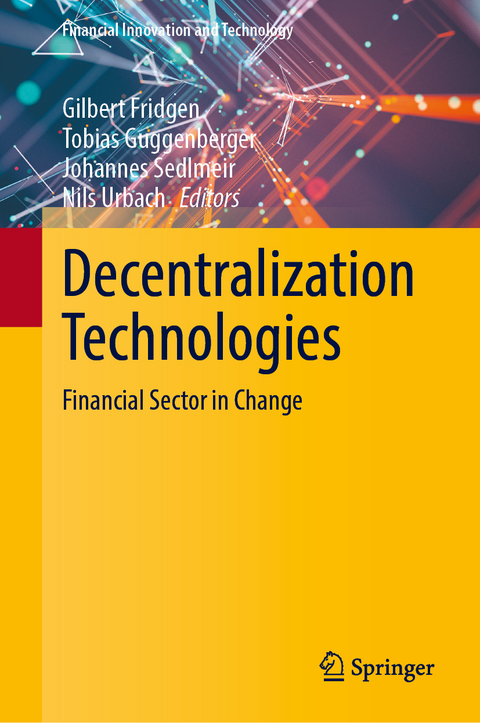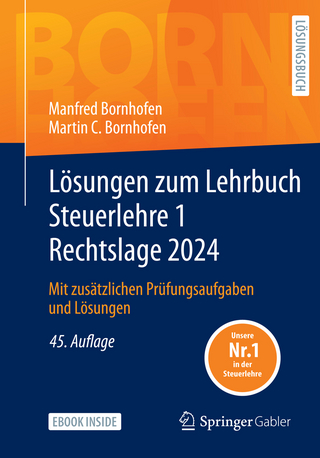
Decentralization Technologies
Springer International Publishing (Verlag)
978-3-031-66046-7 (ISBN)
- Noch nicht erschienen - erscheint am 03.01.2025
- Versandkostenfrei innerhalb Deutschlands
- Auch auf Rechnung
- Verfügbarkeit in der Filiale vor Ort prüfen
- Artikel merken
This book connects decentralization technologies with the world of finance and financial services. Increasingly, the financial sector is data-driven, with tensions arising between technical innovations and regulators' and consumers' expectations. Fundamentally, financial markets are competitive data markets. The authors of this edited book first identify where changes in the regulatory and business regime give rise to novel requirements and needs for these data markets. Next, the authors introduce three key decentralization technologies -decentralized digital identities, distributed ledger technologies, and federated learning. They discuss privacy-enhancing technologies such as zero-knowledge proofs and illustrate the demands of practical applications. The authors further provide explicit application examples to illustrate where and how these decentralization technologies allow to reflect business, customer, and regulatory requirements amid competitive markets. The volume concludes with an outlook on governance and the sustainability implications of decentralization.
Gilbert Fridgen is Professor and PayPal-FNR PEARL Chair in Digital Financial Services at the Interdisciplinary Centre for Security, Reliability, and Trust (SnT), University of Luxembourg. In his research, he analyzes the transformative effects of digital technologies on individual organizations and on the relationship between organizations. He addresses potentially disruptive technologies like Distributed Ledgers, Decentralized Digital Identities, Artificial Intelligence, and the Internet of Things. His research involves information systems engineering, IT strategy, and (risk) management, as well as regulatory compliance. In his projects and partnerships, he collaborates with partners in financial services, energy, mobility, manufacturing, and consulting, as well as with public bodies and governments.
Tobias Guggenberger is Postdoctoral Researcher in Information Systems at the FIM Research Center for Information Management, University of Bayreuth, Germany, and at the Branch Business & Information Systems Engineering of Fraunhofer FIT. He earned his Ph.D. from the University of Bayreuth in 2022, where his research focused on the design and management of blockchain-based information systems. Tobias has published several articles in leading journals and presented his work at numerous conferences. His current research focuses on the management of emerging technologies, such as blockchain and machine learning.
Johannes Sedlmeir is Postdoctoral Researcher in Information Systems at the Interdisciplinary Center for Security, Reliability, and Trust (SnT), University of Luxembourg. He focuses on identifying opportunities and challenges of using decentralization technologies in organizations, e.g., regarding energy consumption, performance, and the handling of sensitive information. He also designs, implements, and evaluates corresponding solution approaches, applying novel cryptographic technologies like zero-knowledge proofs for scalability and/or privacy enhancements in these areas.
Nils Urbach is a Professor of Information Systems, Digital Business, and Mobility as well as Director of the Research Lab for Digital Innovation & Transformation at the Frankfurt University of Applied Sciences, Germany. Furthermore, he is the Co-Director of the FIM Research Center and the Branch of Business & Information Systems Engineering of Fraunhofer FIT. Nils has been working in the fields of strategic information management and collaborative information systems for several years. In his current research, he focuses on digital transformation, AI management, digital identities, and blockchain, among others. His work has been published in several renowned academic journals as well as in the proceedings of key international conferences.
Introduction: Decentralization Technologies in Finance.- Financial Regulation, Political Context, and Technology in the European Union.- Blockchain Technology.- Decentralized Digital Identities.- Federated Learning.- Privacy-Enhancing Technologies.- Self-Sovereign Identity for Digital KYC.- Decentralized Finance and Blockchain in Traditional Finance: Economic Opportunities and Adoption Challenges.- Decentralized Finance and Decentralized Digital Identities: Opportunities and Challenges of Identity Solutions.- Decentralization Technologies in the Context of ESG Accounting and Reporting.- Opportunities and Applications of Federated Learning in the Financial Services Industry.- Decentralization beyond Disintermediation: The Case of Central Bank Digital Currencies.- Reflections on De-Centralization in Decentralized Financial Applications.- On the Energy Consumption of a Decentralized Financial Sector.
| Erscheint lt. Verlag | 3.1.2025 |
|---|---|
| Reihe/Serie | Financial Innovation and Technology |
| Zusatzinfo | XXXI, 263 p. 16 illus., 2 illus. in color. |
| Verlagsort | Cham |
| Sprache | englisch |
| Maße | 155 x 235 mm |
| Themenwelt | Wirtschaft ► Betriebswirtschaft / Management ► Finanzierung |
| Schlagworte | Blockchain • Data Markets • Decentralized Finance • Digital Identities • Disruption • distributed ledger technologies • federated learning • Financial Markets • Identity • machine learning • Regulation |
| ISBN-10 | 3-031-66046-3 / 3031660463 |
| ISBN-13 | 978-3-031-66046-7 / 9783031660467 |
| Zustand | Neuware |
| Haben Sie eine Frage zum Produkt? |
aus dem Bereich


